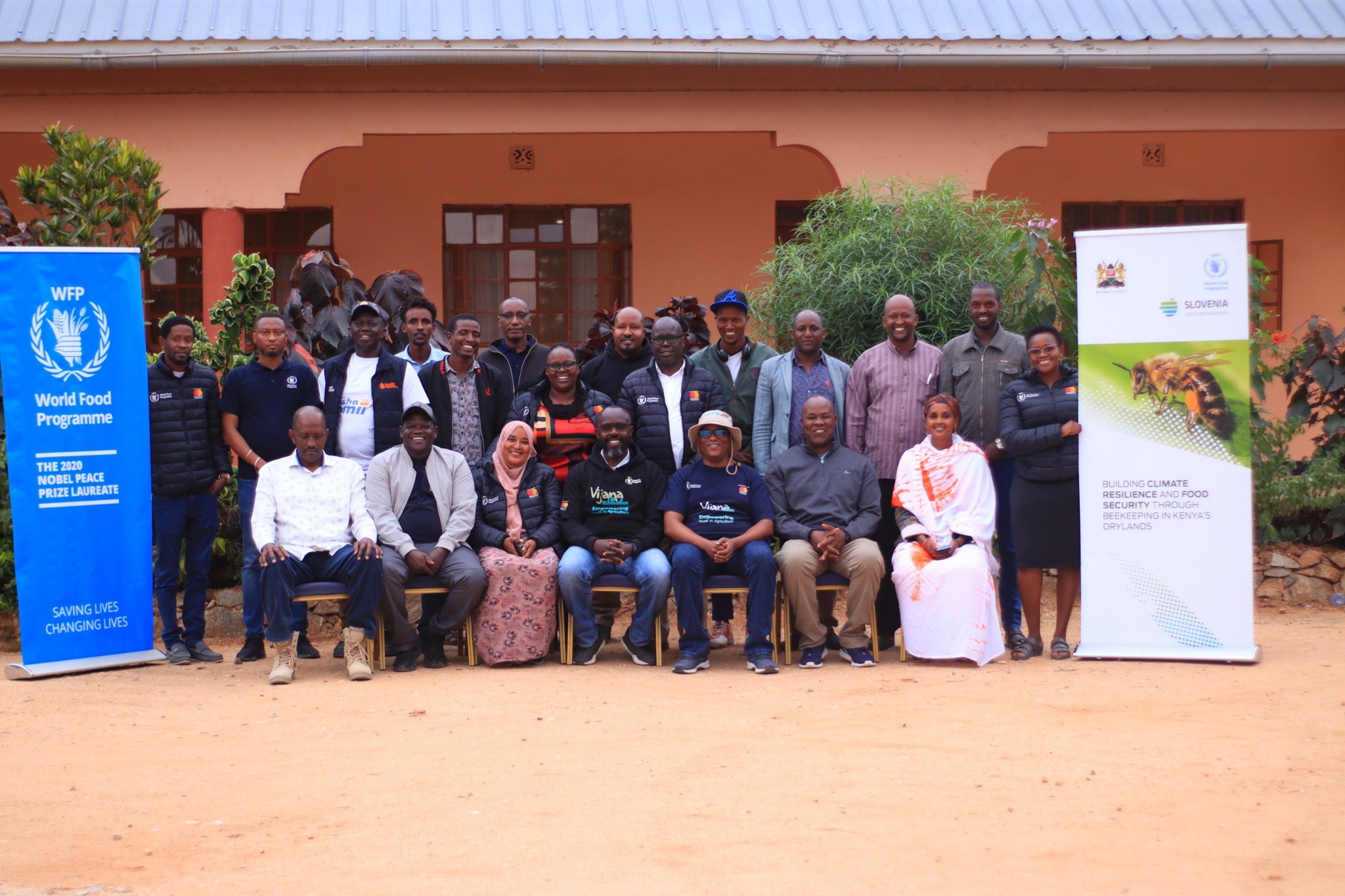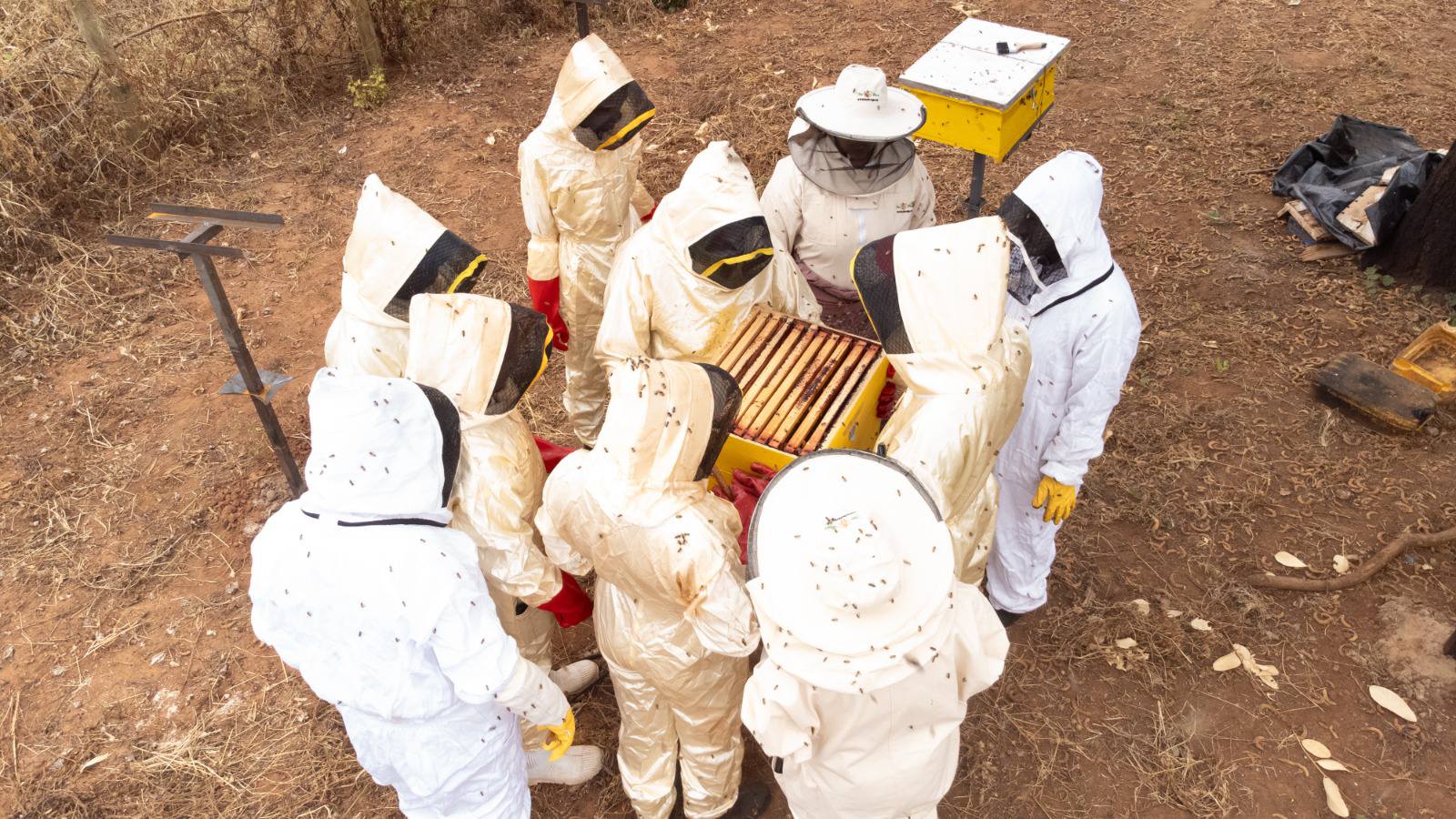Marsabit County has taken a major step in strengthening climate-smart livelihoods through a five-day apiculture training held in Moyale.
The programme, organized in partnership with the World Food Programme (WFP) and Southeastern Kenya University (SEKU), brought together lead farmers, county livestock extension officers, and WFP staff for intensive capacity building on good apiculture practices.
The training equipped participants with practical knowledge spanning modern hive and colony management, postharvest handling, honey grading and certification, as well as value addition techniques involving products such as beeswax, propolis, and royal jelly.

Participants were also introduced to market linkages and financial inclusion strategies, ensuring that beekeeping is not only productive but also profitable for local communities.
According to an update by the county government of Marsabit, the initiative aims to create a pool of master trainers who will cascade their expertise to grassroots farmers across Marsabit.
By embedding technical skills within county extension services, the programme is expected to expand knowledge transfer and significantly enhance the quality of honey production in the region.
Beyond improving production practices, the training represents a deliberate effort to unlock opportunities in the honey value chain.
By ensuring Marsabit’s honey meets high standards for premium markets, the county is positioning apiculture as both a viable commercial enterprise and a sustainable livelihood.
The initiative is particularly focused on empowering women and youth, who stand to benefit from new income streams and expanded market access.
By investing in beekeeping as a climate-smart strategy, Marsabit County is addressing food security, resilience, and economic empowerment simultaneously.
The Moyale training marks a critical milestone in promoting apiculture as a driver of community transformation across northern Kenya.

